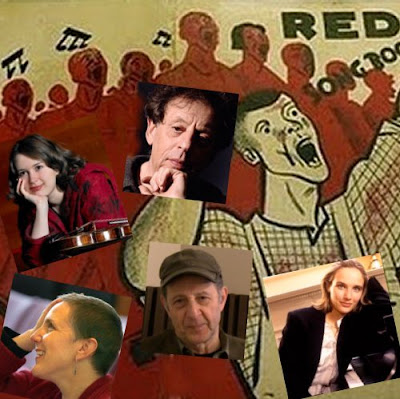Elitism on the world's great orchestral stages

A reader wrote yesterday and asked whether I agreed with everything I post here. The answer is an emphatic no. But I do try to provide food for thought. Which is why I offer an extract from, and link to this article in the current American Spectator. And for those arriving from Agonist.org I would point out that the words below are a quote (which is what an extract is) from the American Spectator article - not my words.
So what should orchestras do to increase the numbers of minority violists? Perhaps they should follow Nazi Germany's lead which set quotas on the number of Jews who could attend medical or law school in order to allow more goyim to become doctors and lawyers? Orchestras could limit the number of white male and female Asian-American orchestra members, and instead of calling it a quota system, they could call it "diversity."
Or orchestras could follow the lead of the professional athletic associations which 50 years ago stopped excluding athletes on account of skin color and now simply hire the best. Does any one really want to see boxing or the NBA adopt a quota system?
Traditionally government and academia have been the testing grounds where theories of social engineering are put into practice. Social engineers, however, have been less successful making inroads into professional sports, the arts and the military. Perhaps that is why our government and schools run like an Edsel, while the San Francisco Symphony and the U.S. Marines are beyond compare.
Certainly a good case can be made that black and Latino students should be exposed to classical music. I'm all for it. But a similar argument can be made for poor and middle class white kids in rural schools, and yet I do not hear Aaron Dworkin pushing for more hillbilly cellists.
If ever there was a case for elitism it should be made on the world's great orchestral stages, where perfection should never be held hostage to political correctness. If you want mediocrity, look to the government and the public schools. Plenty there to go round.
Now for an alternative view read here, here, or anywhere else on the blog.
Thanks to Bernard T for the heads-up. Any copyrighted material on these pages is included as "fair use", for the purpose of study, review or critical analysis only, and will be removed at the request of copyright owner(s). Report broken links, missing images and other errors to - overgrownpath at hotmail dot co dot uk










Comments
www.agonist.org presumably before reading this, this, this, this, this, and countless other articles.
I guess I forgot that whatever side you are on "to provide food for thought" people actually had to read the blog.
Anyway thanks for the traffic.